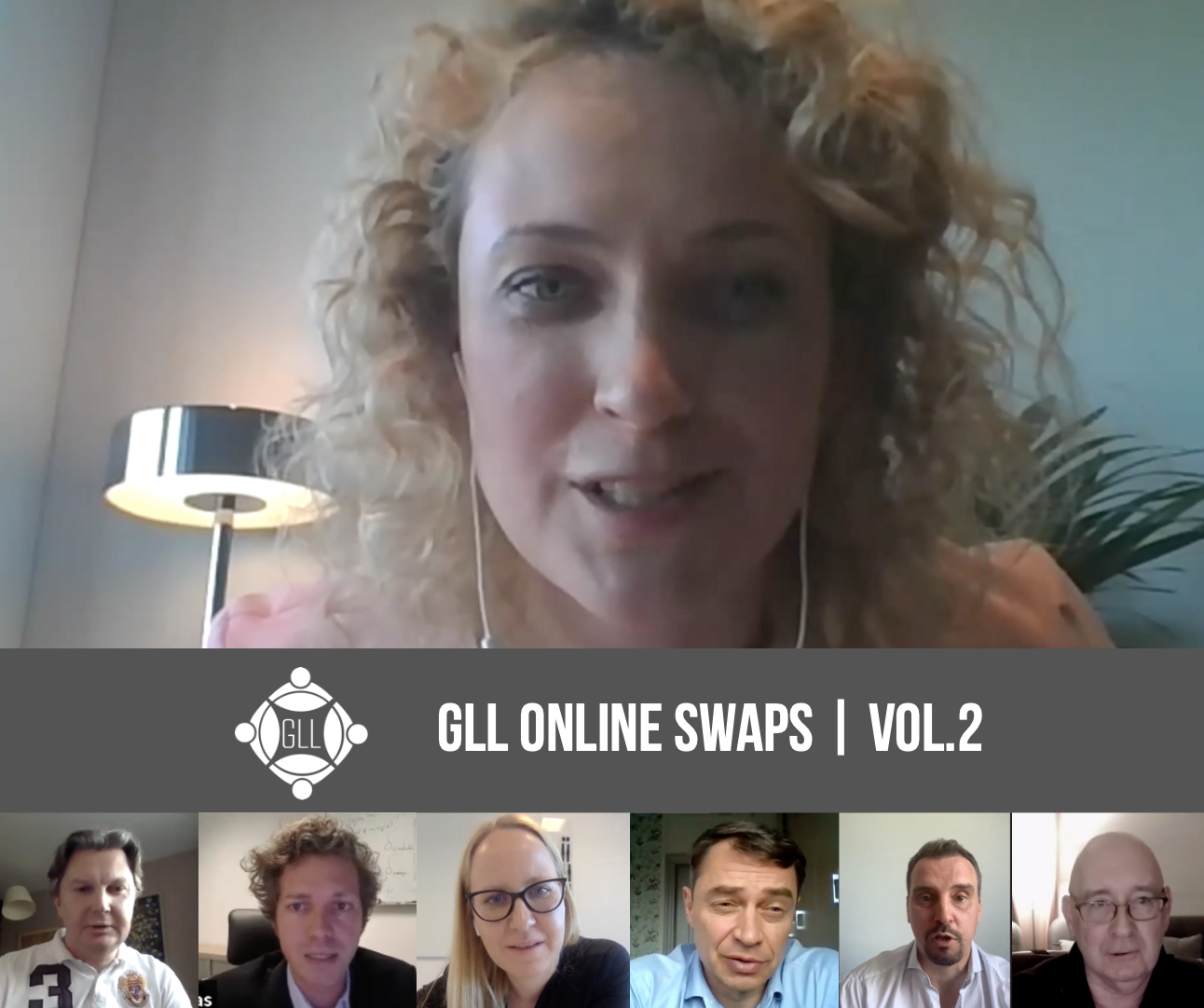KEY TAKE-OUTS & VIDEOS
On April 23, GLL hosted the Online Swap with business leaders from 5 countries and 5 very diverse industries. They shared their experience of dealing with most recent drastic changes in business and social environment.
- Aivaras Abromavicius, CEO @Ukroboronprom, said Ukraine was dealing with several major issues at the same time – volatile political situation, fragile economy, air pollution due to forest fires in Chernobyl and growing numbers of Corona infected population on top of that. However, it seems like Ukraine has build-up some resilience to the situation since the crisis in 2014. In Aivaras words, for once Ukraine is not on the list of most effected countries, with a 7,5% GDP decline forecast which is inline with other European countries. According to Aivaras, JP Morgan in their recent report put Ukraine in the category of “modestly affected” compared to other countries in the developing world. Hear more Aivaras sharing his overview on the economy in the Ukraine as well as his insights on what is the most important for business lead ers in these times of changes.
- Kestas Sliuzas, CEO @Coesia group based in Bologna, Italy, said those last weeks were a real stress-test for leaders, teams and organizations in Italy. The most pressing issue was to insure safety of employees as the only condition to continue operating. However, when it comes to sky-rocketing numbers of infections and deaths in the country, it brings out all sorts of fears in people, even irrational at times. Psychological safety of personnel becomes even more important than actual physical. In his presentation, Kestas shares more about his company’s efforts to bring more peace of mind to their employees, as well as his insights on risks and opportunities which lay ahead for businesses globally.
- Reda Andermo, COO @Incell (Sweden) explained how early risk assessment and preparation helped their young but fast-growing global business to be rather well prepared to what happened on their sites in Asia, Mexico, Africa and US. She believes one of the key success factors was giving a clear authority to the small team of Business Continuity Management to take a lead and decide what is right to do, rather than involving all management of the company with their different opinions and points of view. Reda sees this time as a big opportunity for all parties involved into telecommunication business, however risk management on supply chain and operations will become more important than ever.
- One more region to have some sorts of built-in resilience towards COVID-19 crisis seems to be Hong Kong. Alminas Žaldokas,assistant professor at Hong Kong University of Science and Technology, believes that both public and business resilience is caused by SARS experience in 2003 as well as massive protests that took part last year. For example, currently it is not mandatory to wear masks in Hong Kong, however people massively wear them as a self-conscious act. Also, companies already had policies for working from home instilled due to last year’s protests, so it was easier to adjust this time. In his presentation Alminas shares some consumption data from China which shows that it is basically re-bouncing to pre-COVID levels, however it is forecasted that unemployment will grow due to decreased production demand in China’s factories.
- Talking about measures for psychological safety, there are plenty of those introduced throughout China in various forms of mass surveillance. Business consultant Peter J. Bernota from Wuhan City explains how this experimental approach can on one hand control the spread of virus, but be leveraged into political or criminal surveillance later on. Talking about business in China, Peter notes there is a general mis-assumption in the West that there’s some homogenous impact through a country as large as China. China might be open and responsive to any kind of business opportunities now, however one should be very much aware of the ability of companies to deliver. The reality is that it is still very difficult in many areas of the country to get labor to actually come to work, and there’s also this general fear within both general population and business community that it is still far away from a controlled environment.
Please note, all video recaps are ONLY available to participants of the event and Supporting Members of GLL. GLL would appreciate your consideration to become a Supporting Member.

